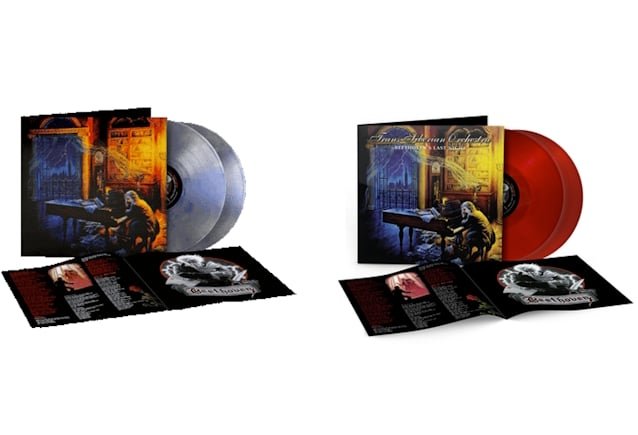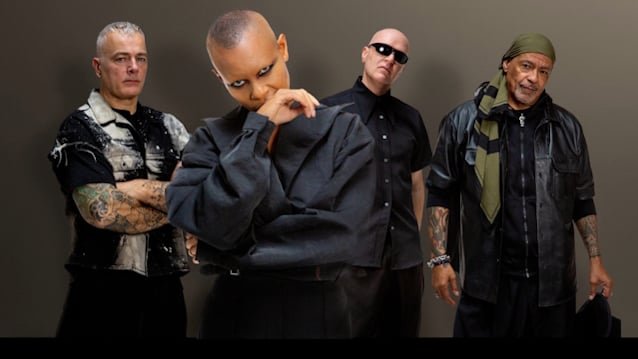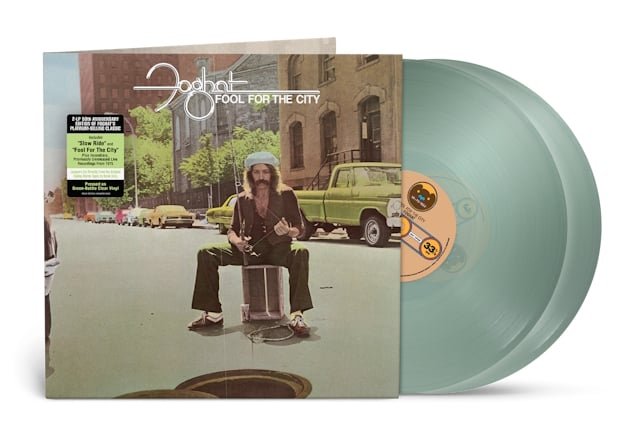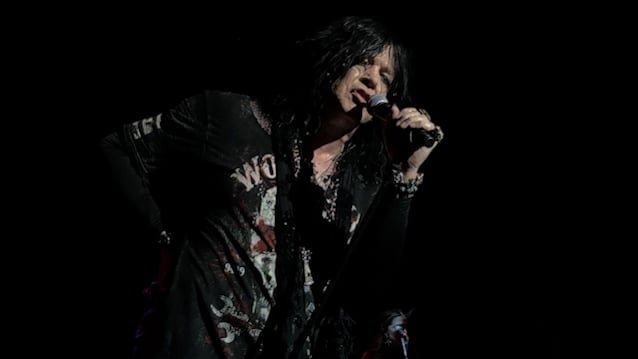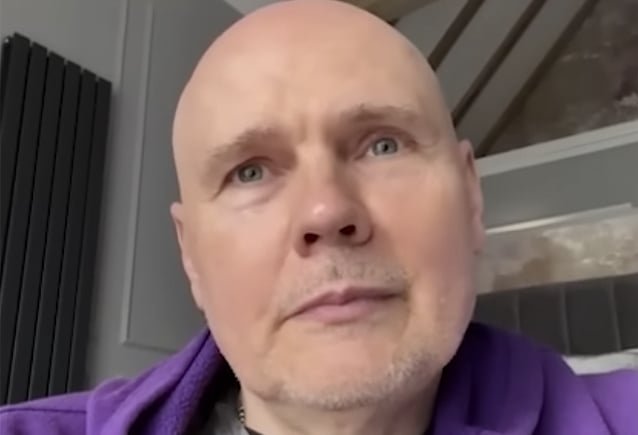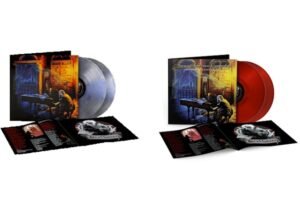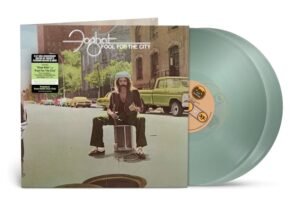By David E. Gehlke
British rock icons SKUNK ANANSIE sequestered themselves in a house with producer David Sitek in Devon, England to write what would eventually become their first full-length in nine years, “The Painful Truth”. The sessions were a revelation. Long a band that blended shards of pulsating rock riffs with frontwoman Skin‘s (real name: Deborah Dyer) emotionally arresting vocals, SKUNK ANANSIE stripped its sound to the bare essentials, pushed Skin even further to the forefront, and embraced modern technology through electronics. The result is perhaps the band’s edgiest and most inspired set of songs in 30 years, further blurring the lines of the kind of band they truly are, ranging from post-punk to electronic rock and moody piano motifs.
“The Painful Truth” arrives at a time when 1990s rock nostalgia is in full swing. SKUNK, of course, first emerged in 1995 via its “Paranoid & Sunburnt” debut and 1996 “Stoosh” follow-up, both of which charted in the Top 10 in the U.K. While SKUNK could likely easily haul out all of their hits and potentially even full album sets, Skin and drummer Mark Richardson clearly find that idea to be anathema for everything the band stands for, a topic, that in addition to “The Painful Truth” was top of mind when they caught up with BLABBERMOUTH.NET.
Blabbermouth: How would you view “The Painful Truth”? Is it the rebirth of SKUNK ANANSIE? The rejuvenation?
Skin: “I don’t think it’s a rebirth; it’s the moving on. It’s definitely very SKUNK ANANSIE. There’s something that grinds me about using that word. I don’t know why. It’s more like a development of our sound that they’ve been trying to do for a while, and it’s suddenly coming together. We finally worked with the right producer to help us, who is Dave Sitek from TV ON THE RADIO, NINE INCH NAILS, and all these amazing people. It feels like we’ve been had. I think it’s also related to a lot of things changing behind the scenes that enabled us to do what we wanted to do, finally, the way we wanted to do it.”
Blabbermouth: Was it a scary and/or liberating feeling being able to do those things?
Skin: “I think there was fear. [Laughs] It was really scary.”
Mark: “Yeah, to bastardize a Bono [U2] quote: ‘When you’re letting go of one expression and you’re heading toward a new expression of yourself, in between, there’s nothing.’ There’s, ‘What do we do now?’ In one way, it’s scary. In another way, it’s liberating and exciting because you get to experiment and do all these wonderful things we don’t normally do.”
Skin: “It was also like a David Bowie quote running through my head about the fact, ‘If you’re feeling comfortable making music, then you’re in the wrong place.’ Because if you feel comfortable making music, then you’re doing what you’ve always done, which is why it feels comfortable. If you’re pushing yourself to do something different, that’s not very comfortable; it’s very scary and unpredictable. You have to trust your instincts to tell if you’re doing it right or wrong. Half the time, we don’t know. We didn’t know what we were doing until we got to ‘Artist Is An Artist’. That was the big breakthrough for the rest of the album, like, ‘Okay, this is amazing.'”
Blabbermouth: How much were you willing to let David take the reins, then?
Skin: “I think completely. I believe we needed someone outside the band who loves the band but can see what we’re doing wrong sometimes. The example I’d use is ‘Artist’. When we first did it, we had this big, powerful, stonking riff that I loved. I love a good riff. That was the first thing he removed. Looking back, I get it now. It made us sound a bit ’90s or typical SKUNK ANANSIE. When he took out that riff, there was all this space. He was very particular about what went into it. The riff took up all the energy and space, which was great, but it was making us sound dated. I think sometimes you need someone outside the band to see that. It’s like, if all four members are making music, the person observing can reflect because they’re not actively playing or involved. Having someone outside who understands us deeply was really helpful. For the first few songs, we just focused on getting to know each other. We just hung out; he smokes a lot of weed. We made good food, talked, complained a bit and got to know each other because there was definitely a sense that ‘If we don’t get each other, we can’t make music together.’ It was an emotional process recording the album. We wanted it to feel natural, real and authentic. Dave isn’t the kind of producer who works with just anyone. He’s very selective and has to like the people he works with. We’re the same way. We’ve been around for a long time. We need to like the people we’re working with, the environment, and the vibes. Then we know we can jump off the cliff together, and it’s going to land somewhere meaningful.”
Blabbermouth: You got together in a house in Devon, right?
Skin: “Yeah, it was a house where the internet doesn’t work.”
Blabbermouth: That had to be nice.
Skin: “Yeah, imagine a place with no internet! That allowed us to focus on making music. It cleared our heads and the energy. The four of us went back to being a band, making music and writing a song. The focus was different for us this time. What we did was finish complete songs, then do a little demo at the end of the day. Before, we would write and record things, and I would have to come up with some lyrics for later on, which I really hated.”
Mark: “That was the thing that was majorly different this time. We would write something until Skin got an idea of the lyrics. Then she’d go, ‘Everybody fuck off! I’ve got this scribble like a mad professor.’ When she had the skeletons of the lyrics, like the main idea, we’d come back in with the music.”
Skin: “A song really starts from having something to say. What do we want to say about any given topic? Sometimes, nothing comes to you. It’s working out in a really interesting way to voice what’s going on inside. That’s the translation, the work, the hard bit. The rest is fine-tuning the idea. If it has that core thought and that core lyric that’s going to sum it all up, it’s not really a song, it’s just an instrumental. Every song has to have its own heart, its own root. They live and breathe. That was one of the things that bothered me about all the songwriting sessions we did before. You start, and you’d have a good piece of music, but if you don’t have the lyrics, it’s not going to go anywhere. It meanders and turns into nothing.”
Blabbermouth: Did that lend to each song sort of standing by themselves? You start with “An Artist Is an Artist” on through, and there’s this diversity.
Skin: “The way we used guitars, we started as a rock band. We’ve developed from there. I think electronics is the most exciting thing on the planet right now, the things that they can do. That’s really exciting. That’s where the creativity is on the planet. It’s not in rock guitar. It’s about, ‘Where do you place the guitars?’ We are essentially a guitar band. It’s really important, but you don’t have to do all the big old fucking riffs. They’ve been done. Really, every single riff in every connotation has already been done. It’s that people like those. It’s things that people like, so that you can offer different flavors, and people will like them. It’s that LED ZEPPELIN and AC/DC did them, and you can change them a bit, and people still like them because they like that sound. It’s all been fucking done. What makes it exciting is that you can place and texture them and juxtapose them with electronic songs. That’s where the excitement lies with me: Is how can you do what we do, but do it in a different way? That involves a lot of experimentation. To be honest, you go down a path and at the end, it can be a dead end, and you have to stop and go down a different path. There’s a lot of experimentation in that. [Laughs] It’s not like playing a kick drum to find the right sound for two days. We don’t do that because we have a drummer. It’s about finding ways to tell the story that doesn’t clog it up with riffs. There’s guitar in there. The guitar is really hooky, and you can grab hold of it. It’s really authentic and beautiful.”
Blabbermouth: It’s a raw album, yet you’ve used modern technology to create it.
Skin: “Onstage, we added a dub siren. It’s out of control. You can’t control it, and they don’t do the same thing every time. You add guitar, bass, drums and vocals to it, and it’s really interesting to have those elements as layers. With that early material from the ’70s, particularly the analog era, it was exciting. But plug-ins are now exciting. I think plug-ins — I’m really happy those Covid albums are done and out. They’re all written with plug-ins and sound cheap. I’m so happy with those Covid albums, they’re all out and done. We didn’t get involved with that — these depressing, bad-sounding plug-in albums are done. I think using certain electronic technology is like using instruments, but it’s unpredictable. You can blink it, and you get a sound, but you don’t really know how the sound will turn out. When you record it, you get it forever. One of the things we noticed is that we had to shift to keeping some of those sounds in our computer and play them live; otherwise, you can’t get them again. We’ve had more on the computer this time than before. We’ve never done that before in that way. That was also quite new. But it works! We can play our instruments. Everyone knows we can play.”
Blabbermouth: How do you feel about bands whose entire live show is on their computer, then?
Skin: “That’s okay! Maybe that’s their sound.”
Mark: “If our system goes down, we can still play the songs. We might lose the 60-piece orchestra in ‘Charlie Big Potato’ or the synthesizers in ‘Artist’, but we can still effectively play those songs. We’re not leaning on it.”
Blabbermouth: There is so much interest in bands from the 1990s. Obviously, this is when you got your start. What is your take on the calls for bands to either recreate that music live or stick to that sound?
Skin: “People can go back and listen to those records if they want. Good for them. If you want that nostalgia, play the old records, but don’t expect us, as the beings that we are now, to do that. I think there’s nothing wrong with that at all. Every band is its own culture, and they should do what the fuck they want to do. If you’re a band and you’re biggest hit is from the ’90s and that’s what you play, there’s nothing wrong with that. We understand the challenges of making a living in this industry. Some bands, that’s all they have to rely on. For people to expect us to do that as creative beings, I don’t think our fans expect us to do that. Our fans want us to play both the old and new songs. They’re very open and receptive to the new album, and that’s why it’s doing so well; that’s why people are loving it. We’ll always do new things, and that’s what people expect from us. We’re not going to do some kind of modern SKUNK karaoke. We’ll only play old songs if it’s vibing with us. We threw an old song off the list because it didn’t feel right. ‘My Ugly Boy’, we had been playing for a decade, and we replaced it with ‘Shame’ from the new album. People love it. The old songs sound really well alongside the new ones. That’s what a great show is, a great production.
“I understand that some people may not like the new record because they want us to recreate the first album. That’s okay. You don’t have to be into what we’re doing now. You can play the older albums. Keep giving them streams! We’re not that kind of band; we’re not that nostalgic. I’m kind of like, ‘We’ve done that.’ Do you know what? If we did that album, the first one again, people would fucking hate us. We’d get slagged off! They’d say, ‘SKUNK ANANSIE haven’t changed.’ When you give people what they want, they don’t like it. When you give people something completely fresh, they’ll get excited. All people want from bands is to go, ‘Fucking A. This is great. I didn’t know this band was going to do this!’ That’s what people actually want. They may say, ‘Oh, why don’t you do a tour with your first album?’ Then they’d miss ‘Ugly Boy’, ‘Twisted’ and all the newer songs.’ That’s what ‘An Artist Is An Artist’ is about. It’s up to us to create art and share it with people. It’s not up to Chat GPT to write it and do it for you. It’s up to us to dig out the core of our souls, get all the dirt and feed it to people and do something wonderful with it.”
Photo credit: Rob O’Connor
